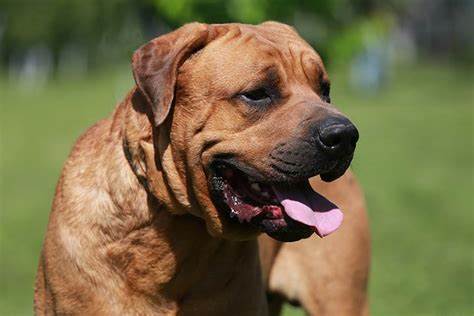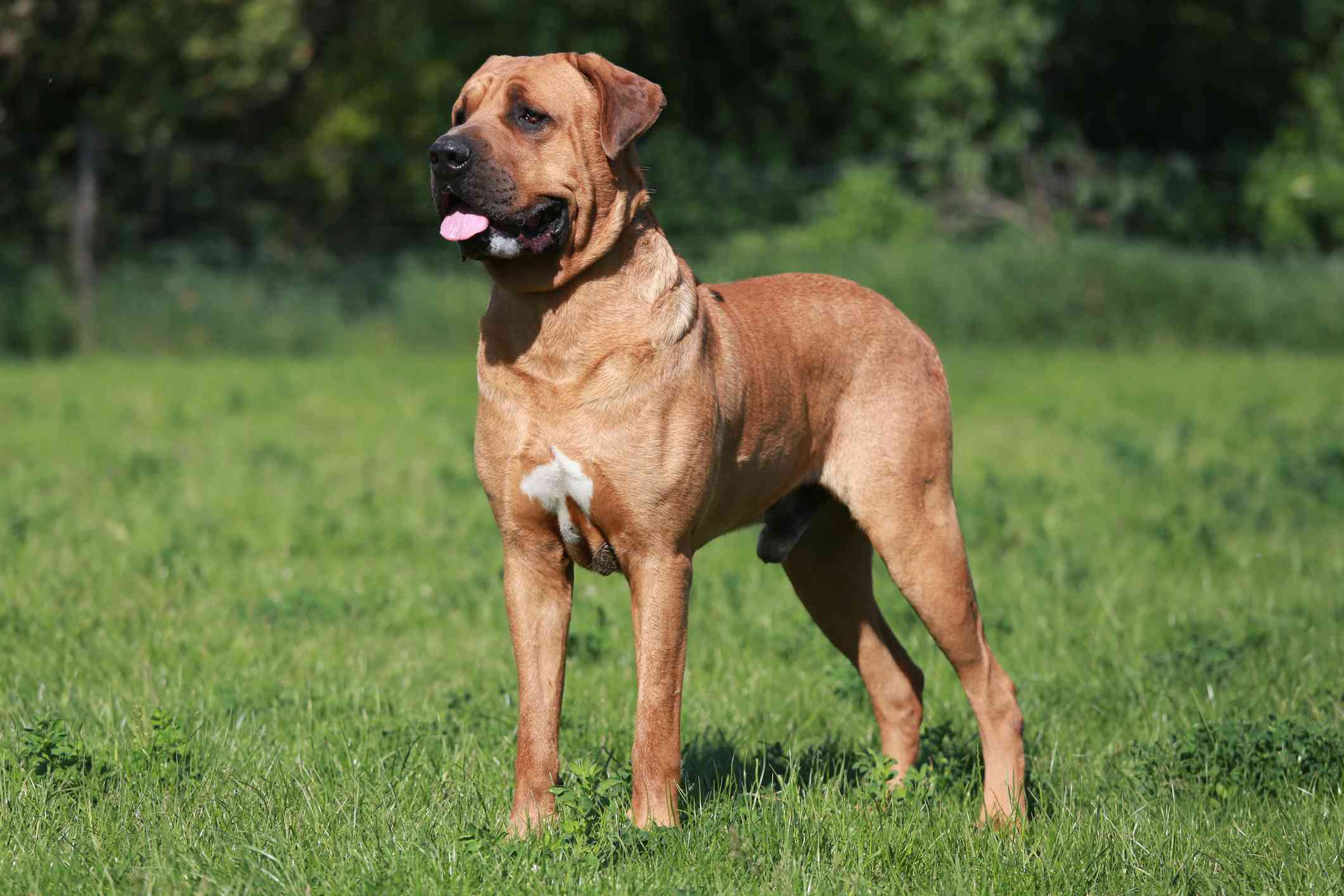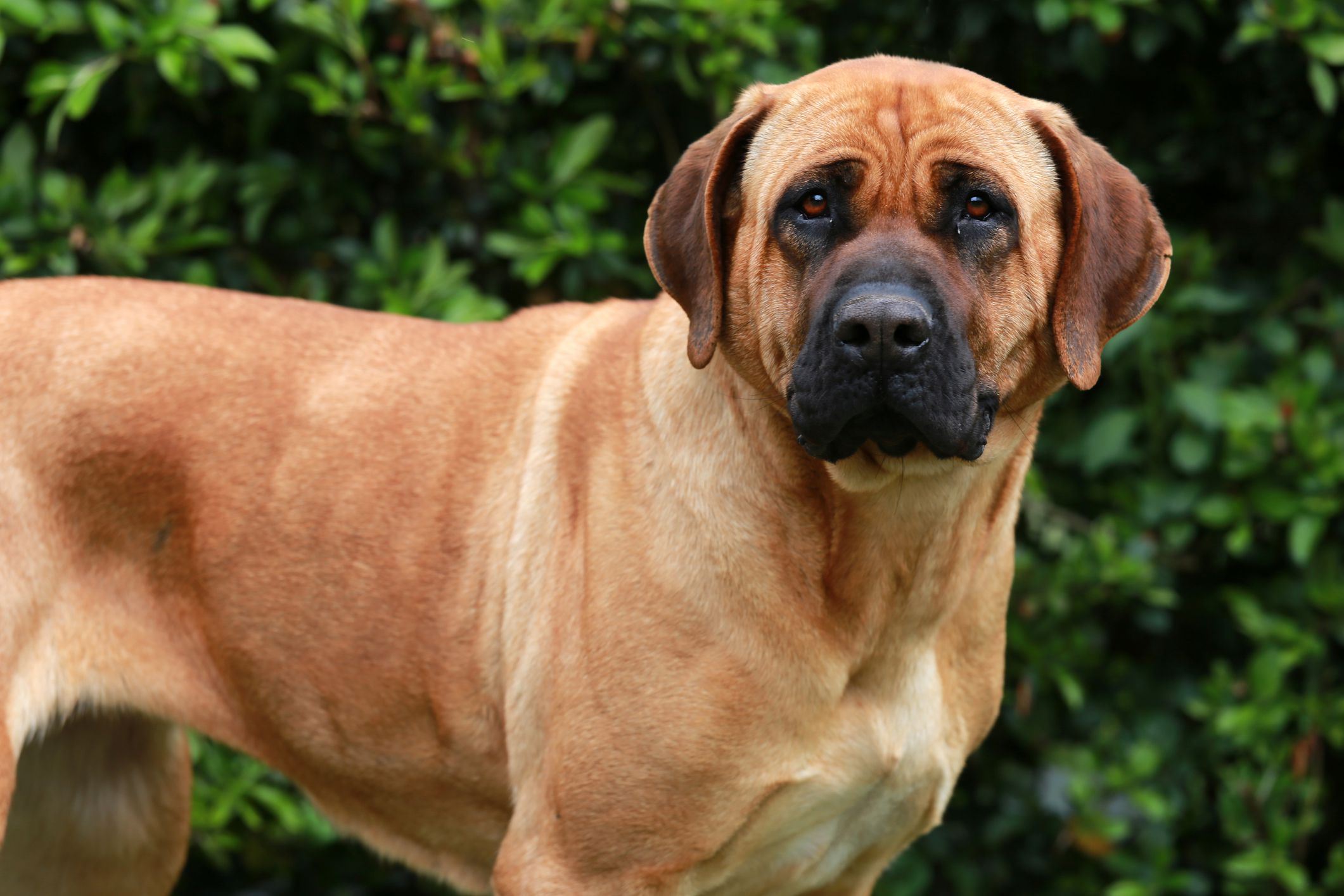
The Tosa, also known as the Tosa Inu or Tosa Ken, is a rare and powerful mastiff-type breed originating from Tosa (modern-day Kōchi Prefecture), Japan. It was developed in the mid-19th century to be the ultimate Japanese fighting dog, combining strength, endurance, and stoic temperament.
The breed’s foundation stemmed from native Japanese dogs crossbred with various Western breeds introduced by European traders, including the Bulldog, Mastiff, Saint Bernard, German Pointer, and Great Dane. These crossings created a larger, more formidable dog that retained the disciplined, silent fighting style valued in Japanese dog fighting, which is more ceremonial and ritualistic compared to Western styles.
While historically bred for dog fighting, modern Tosas are regarded as dignified guardians and loyal companions. Their cultural significance has earned them the nickname "Sumo wrestler of the dog world", reflecting both their power and composure.
The Tosa remains relatively rare both in Japan and internationally, partly due to its specialized history and strict regulations in many countries. In Japan, it is still admired as a national treasure and symbol of strength.
Internationally, the breed is sought by enthusiasts of mastiff-type dogs, but prospective owners should be aware that Tosas are restricted or banned in several countries, including the UK, Australia, and parts of Europe, due to their fighting dog heritage.
The Tosa is a large, imposing, and athletic dog with a commanding yet elegant appearance.
• Height: 24–32 inches (60–82 cm)
• Weight: 100–200 pounds (45–90 kg) — Japanese-bred dogs tend to be smaller; Western lines are heavier
• Build: Robust, muscular, and powerful yet agile
• Coat: Short, dense, and smooth
• Color: Typically solid red, brindle, fawn, or black; small white markings on chest and feet acceptable
• Head: Broad and massive with pronounced cheeks
• Eyes: Small, dark brown, and calm
• Ears: Small, high-set, pendant, and slightly folded
• Tail: Thick at the base, tapering to a point, carried low
Tosas are calm, courageous, and dignified, with a composed and self-assured demeanor.
• Loyal: Deeply devoted to their family and territory
• Protective: Natural guardian instincts, though not unnecessarily aggressive
• Quiet: Known for their silence and stoicism, especially under pressure
• Confident: Self-assured, not easily startled or provoked
• Reserved: Wary and aloof with strangers, but rarely reactive without cause
While affectionate with their owners, Tosas are independent and require confident, experienced handlers who can provide consistent leadership.

The Tosa is ideal for:
• Experienced dog owners seeking a loyal and powerful guardian
• Homes with secure outdoor spaces and minimal unfamiliar visitors
• Enthusiasts of rare, noble, and historically significant breeds
It may not be suitable for:
• First-time dog owners
• Families with young children or multiple small pets
• Homes in regions with breed-specific legislation (BSL)
Tosas require thoughtful care and management due to their size and temperament.
• Exercise: Moderate; daily walks and space to roam are beneficial, but they are generally calm indoors
• Training: Early socialization and firm, consistent positive reinforcement essential; thrives under structured guidance
• Grooming: Low-maintenance; weekly brushing and regular ear and skin checks
• Living Environment: Spacious, securely fenced property; not ideal for apartments
• Feeding: High-quality diet formulated for large-breed dogs; prone to weight gain if overfed
Tosas are generally healthy but can be prone to conditions common in large breeds:
• Hip dysplasia
• Elbow dysplasia
• Gastric torsion (bloat)
• Hypothyroidism
Their typical lifespan is 10 to 12 years.

• Cane Corso: Slightly more active and people-oriented; similar guarding instincts
• Mastiff (English): Larger and heavier, less athletic, with a more docile temperament
• Presa Canario: Comparable guardian breed with more intense territorial instincts
If you’re seeking a calm, powerful, and deeply loyal guardian with a rich cultural history, and you have the experience and environment to meet its needs, the Tosa offers a unique and rewarding companionship.
Due to strict regulations and its rarity, sourcing a Tosa requires patience and diligence. Reputable breeders focus on temperament, health testing, and breed preservation. Check breed clubs, mastiff enthusiast groups, and consult local laws regarding ownership restrictions.
United Pet Club can assist Tosa owners with health monitoring, microchip registration, and international travel documentation, including for regions with breed-specific requirements.